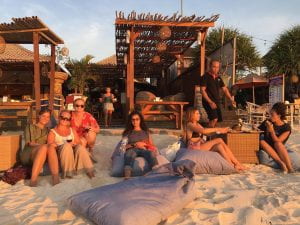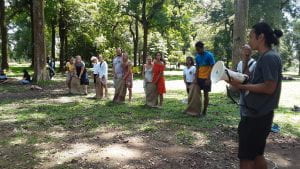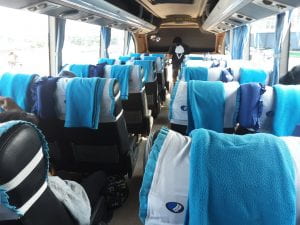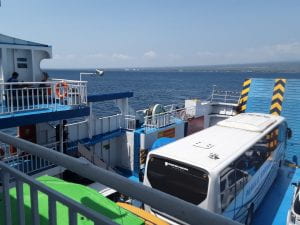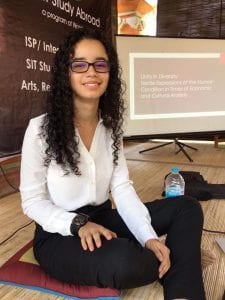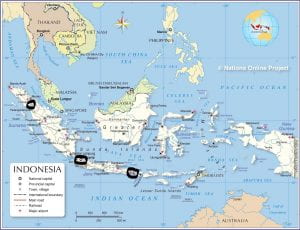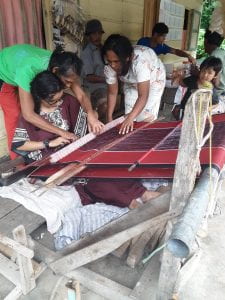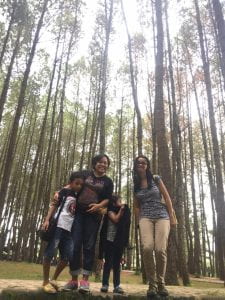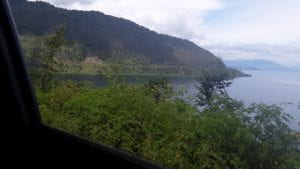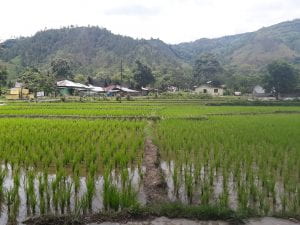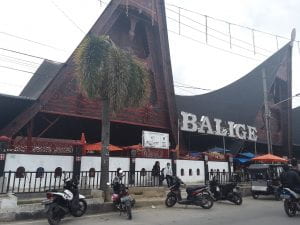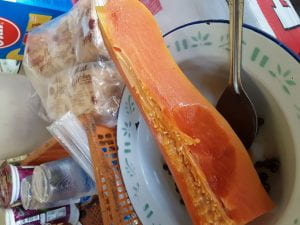After I had been accepted into the program, I began planning and preparing as much as possible for the semester ahead of me. While I couldn’t exactly anticipate my future experiences, I could try to make future life a little easier for myself, especially considering the number of changes in my access to wi-fi and supermarket-esque services. With that being said, listed below are five things I wish I knew to begin doing during the summer before my semester abroad.
1. Start learning Bahasa Indonesia.
Bahasa Indonesia is the national language of Indonesia, and it is incredibly important to know because there are a great number of Indonesians who do not speak English. Thus, knowledge of Bahasa Indonesia is key to communicating with them, and if you spend your ISP in an area where no one speaks English, then proficient language skills are key to survival.
I and a few other students used Duolingo during the summer before the semester, and in my opinion, even just learning the basics will give you a huge advantage when you actually begin to learn during the semester abroad. I noticed many of the students who professed that they didn’t used Duolingo beforehand struggled to retain basic vocab and grammar as opposed to those who’d started early.
By getting a head start, you can start focusing on developing more complex Bahasa Indonesia faster, which will better prepare you for the excursions and homestay experiences.
2. The packing list is misleading.
Perhaps one of my greatest pet peeves was the packing list. I followed it exactly, but I shouldn’t have. Admittedly, it is quite tricky to narrow down exactly what you will need because the program changes slightly with each semester, but let me share with you what I did and did not need to bring with me to Indonesia that the packing list did not cover.
It is wise to bring enough long sleeves/pants/skirts to stretch out over a week. We spent a full week in East Java and could only wear items that covered our elbows and knees modestly. I was certainly not prepared, and as such, I needed to buy long-sleeved shirts in Indonesia before embarking to East Java. Furthermore, I chose to conduct my ISP in a more conservative area, and also needed similarly modest clothing for a month to respect the local culture.
The packing list also warns against bringing too many casual clothes and instead requests that the bulk of your clothes be formal. While you should certainly bring clothes that extend past the knees and that cover your shoulders, they do not need to be formal in the business sense of style. In fact, such clothing is likely to get ruined very quickly by sweat and stains.
Thirdly, you must bring a pair of pants or shorts with a shirt that you do not mind getting dirty or ruining utterly. There is a section of the program during which you will likely be caked in mud that is supposed to stain your clothes irreparably. With that being said, it is rare to come across a washing machine or dryer. Therefore, whatever clothing you bring, they should preferably be resistant to stains, will not bleed color easily, and can feasibly be washed in cold water and air-dried by hand.
The biggest lie of all on the packing list is the request that you bring notebooks. SIT Indonesia provides you a notebook for each subject along with a pen, so you should only bring along notebooks as extras or for some other non-SIT writing activity you plan to do. Other office supplies are also not necessary unless you think you need really them. Flashcards in particular were especially useful to me, but I could not find more for sale in Indonesia: So stock up on what you think you need.
3. In terms of hands-on experience, this program is very good at what it does, but it is shaky in preparing its students for the academic work it expects of them.
I advise to be constantly looking ahead at the schedule, even weeks in advance, because the program leaders will likely inform you of events and assignments at the very last moment before they are due. This isn’t unlike Whitman College at times, but there is rarely sufficient time to complete the SIT assignments comfortably before they are due. The general schedule is often so hectic that I had to steal little moments here and there to complete the required assignments.
Additionally, there is very little structure set in place to slowly prepare students for the type of work it expects, work which is mostly geared towards anthropology. I advise that you try to get familiar with anthropological methods of study, terminology, principles, and test-taking methods. If you are not already familiar, then perhaps ask some anthropology majors or professors what their experiences are, and I’m sure that they would be happy to help you gain some ground.
4. One piece of advice given constantly by the program director is to “lower your expectations.”
I must say that mindset is the single most useful view to adopt if you want to enjoy every bit of your experience abroad. Because this program—and life itself—often throws unexpected situations at its students, lowering your own anticipations can help open your mind to new and unexpected experiences.
Be careful about researching Indonesia too much before leaving, because that information may fuel certain expectations that will not be fulfilled during your time abroad. While I certainly believe that researching Indonesia’s political climate and broad facts about the nation can be useful to you, delving too deeply into specifics—such as specific places, subjects, or religions of Indonesia—may inadvertently build expectations that this program cannot fulfill.
5. You must save up for this trip. You will be paying for some basic needs out of pocket.
Let me preface this point by saying that of course you’ll have to spend your own pocket money for personal shopping and maybe to buy souvenirs. The program is not, and should not, be responsible for those expenses. However, there are some basic needs that the program advertises itself as able to fully cover, but I have found that not to be the case.
Before the ISP period, you are given regular allowances for the weekend (specifically for meals on your own time), but that amount will cover the bare minimum. It is not the worst situation you could be in, but I don’t believe those allowances fully cover basic food expenses. They mostly cover them, because many of the restaurants in Bali are priced a little high due to its great tourist population. We spend most of the semester in Bali, and therefore, it is difficult to locate cheap but sufficient places to eat.
It is during ISP that money seems to become a real problem. During my semester, the ISP stipend of 5.7 million rupiah (approximately $400) was generally enough to pay for either cheap living space or all transportation (planes and taxis, etc) alone. If the stipend went towards one of these expenses, it could not feasibly cover the other entirely, nor does it account for other expenses such as food, translator services, courtesy gifts for interviewees, and all other potential costs. These estimates also do not factor in money deducted for hospital services of which other students had unfortunately needed to use before the ISP period.
This predicament is quite unfortunate because if you want to study something outside of Bali, you will have to pay for a plane ticket. Because of safety standards, the program allows you to ride only certain airlines—which tend to lean towards the more expensive. That leaves housing and all other costs under the responsibility of your personal wallet. On the other hand, if you study in Bali, it is difficult to find cheap housing because of its high tourist population and those accordingly scaled costs of living. Thus, housing takes up the stipend and leaves other costs up to your wallet.
Therefore, I suggest you save up for the semester abroad perhaps $300 dollars for the ISP period alone. Roughly $400 will go towards living and extra transportation in the area—which will likely be paid for by the stipend—$150 dollars for potential flights to and from your area of study, maybe $100 for the month’s food if you cook for yourself, and $50 for extra expenses. This number does not account for any extra money that you may spend before or after the ISP period. It also does not account for any unexpected expenses that may crop up during the ISP period.
~~~
Although I’ve ended on a bit of a dark note, the SIT Indonesia program will offer you experiences that you could not locate in America or even if you were to visit Indonesia on your own time. The people that you’ll meet and the activities you’ll perform leave a lasting impression. That makes all of the expenses and the strifes, in my opinion, certainly worth it.

